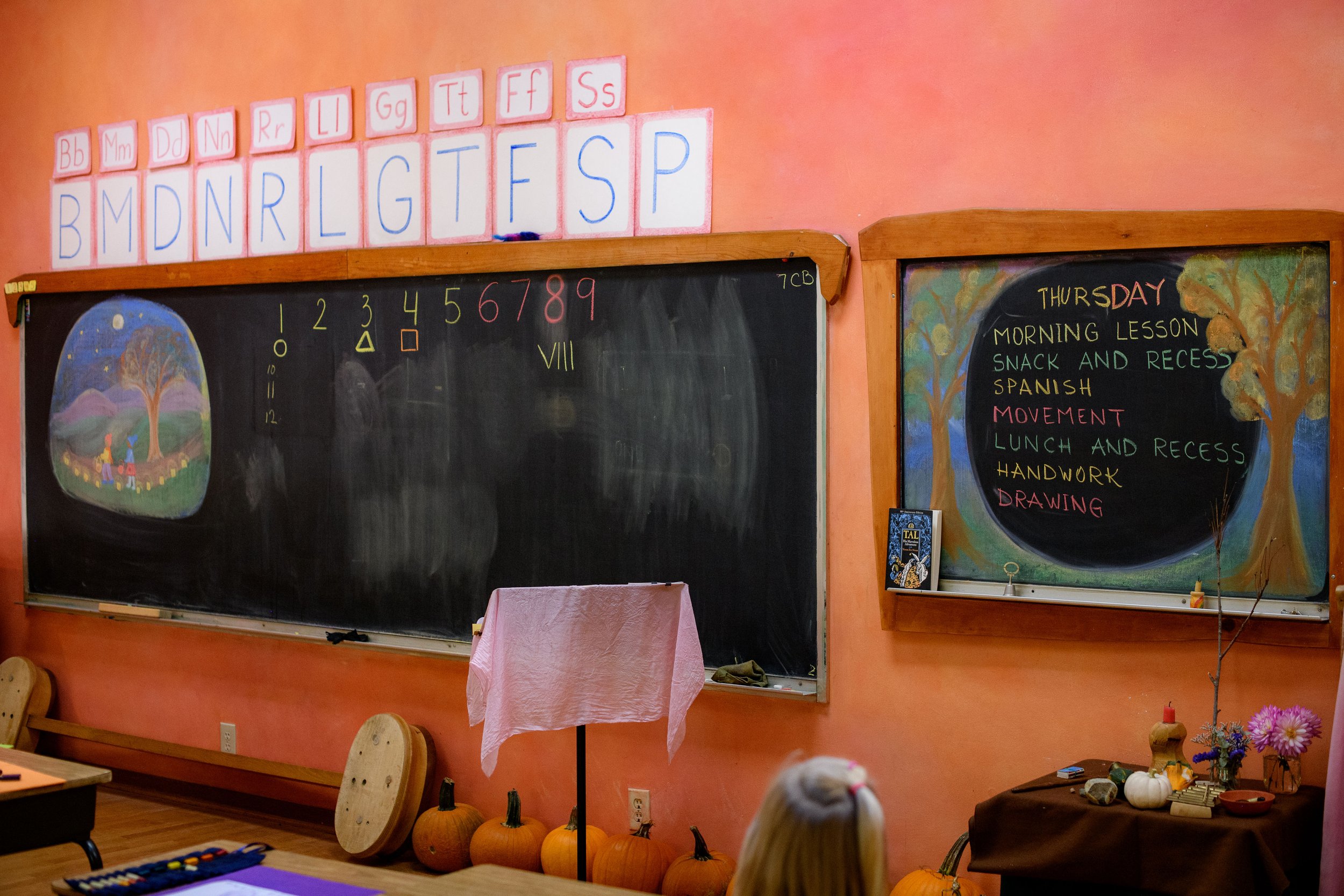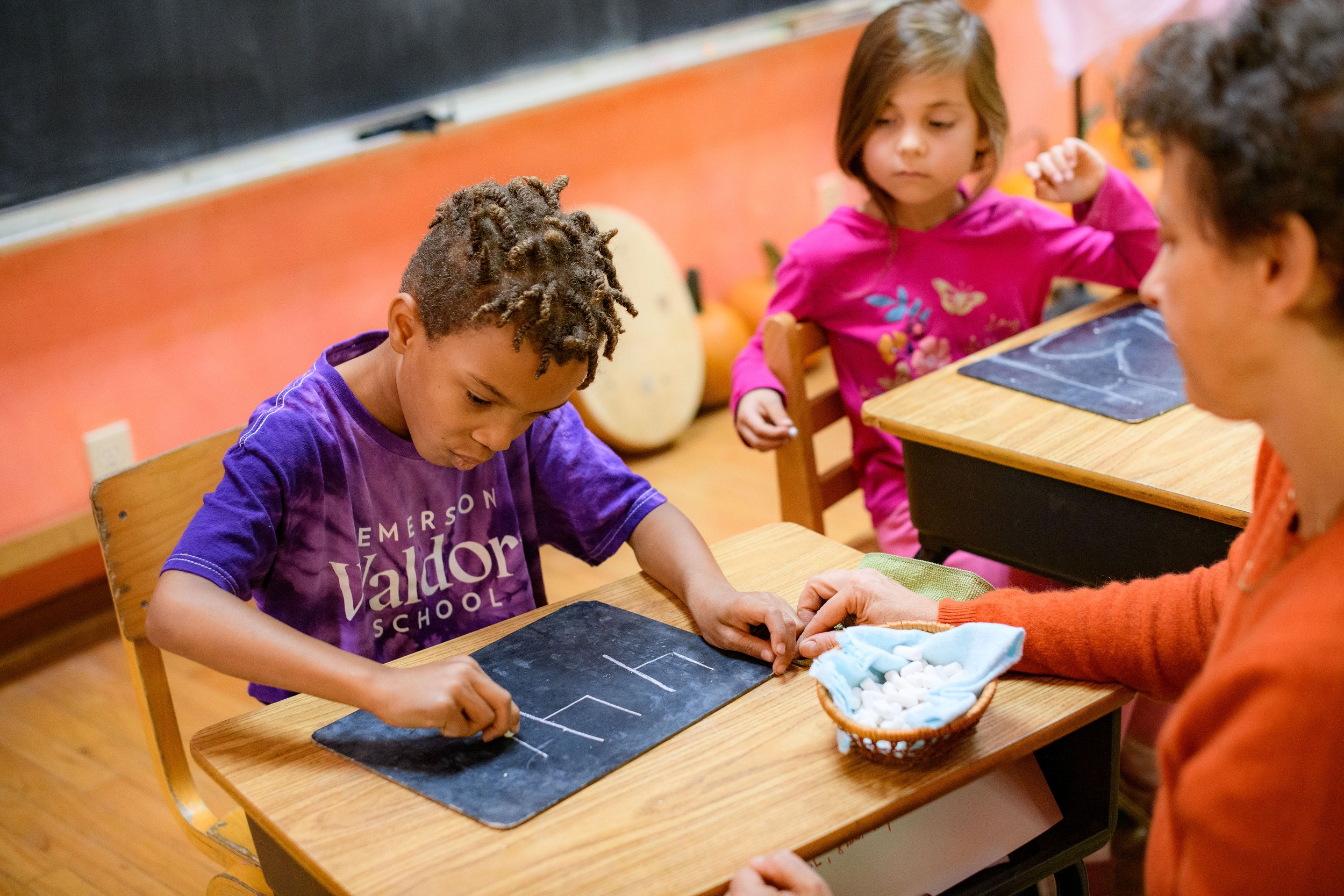
1st Grade Curriculum
Children come to 1st Grade full of curiosity and are met by teachers who foster the skills necessary to learn, work, and play in an atmosphere of warmth and reverence. At the age of six to seven the children are crossing a threshold to the second seven-year period of childhood. It is at this time that we begin to introduce the child to a formal learning experience.
While academic skills are important, we also endeavor to cultivate a healthy moral and social sense in the child. This education of the whole child begins on the first day of school with the establishment of healthy individual and class habits. Working habits support the children’s learning throughout the grades journey by creating a rhythm and structure that strengthens them. The ways of being with one another and honoring that person are also essential to forming a cohesive and unified social body in 1st Grade.
1st Grade is truly a year of firsts – how to speak collectively when reciting a verse, how to answer a question, how to hold a pencil for writing, how to use block and stick crayons for drawing, how to care for materials, how to play with another or others, and much more. Those initial experiences create habits that serve children as they transitions through the grades journey and beyond.
Many subjects are introduced in 1st Grade, and even if the child is already familiar with the content, the wonder and beauty the teacher brings to the subject matter holds the students’ attention as they begin their formal learning experience. The exploration of ‘straight and curved lines’ in 1st Grade lays the foundation for later written letters and numbers as well as formal geometry. The students hear fairy tales, folk tales, and nature stories that support the formation of letters, simple writing, and qualities of numbers. Children learn in a variety of ways, from daily movement and finger games to modeling beeswax, singing, and reciting poetry. Learning the pentatonic flute, knitting, performing simple classroom chores, celebrating the festivals, enjoying cooperative games, participating in eurythmy, and learning the Spanish language are also part of the 1st Grade experience. All that is done in 1st Grade is aimed at creating a rich learning environment in which the children’s capacities and skills may germinate and flourish.
-
Learning and modeling good classroom behavior and habits.
Listening and communicating constructively.
Developing a sense of discernment.
-
Learning of letters and their sounds
Introduction to writing from the stories heard
Introduction to reading
Drama
Oral recitation
-
Nature study through experiential events
Number concept
Arabic and roman numerals
The four operations (+, -, x, ÷)
Word problems
Estimation
-
Folk and fairy tales from around the world
Nature stories
-
Songs
Dances
Games
Poetry
Stories
-
Garter stitch knitting
Creating knitting needles
Finger weaving
-
Beeswax modeling
Form Drawing: Straight and curved lines, Linear forms, living into colors through color stories in painting (?)
-
Currently offering:
Singing
Pentatonic flute
Lyre
-
Cooperative Games led by the class teacher
-




